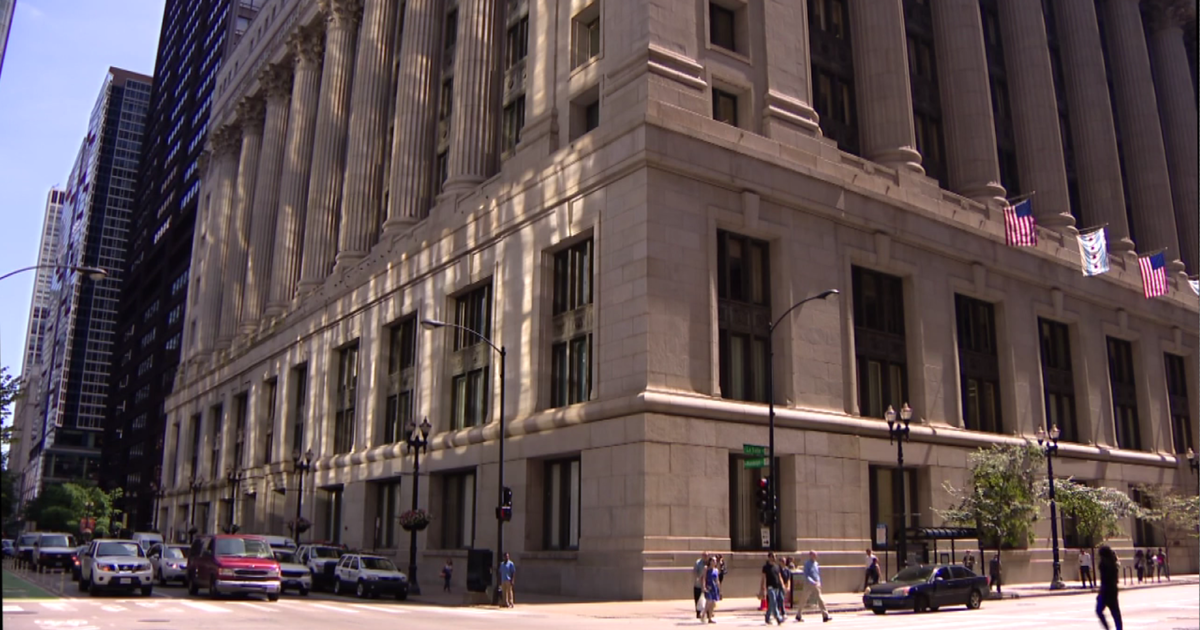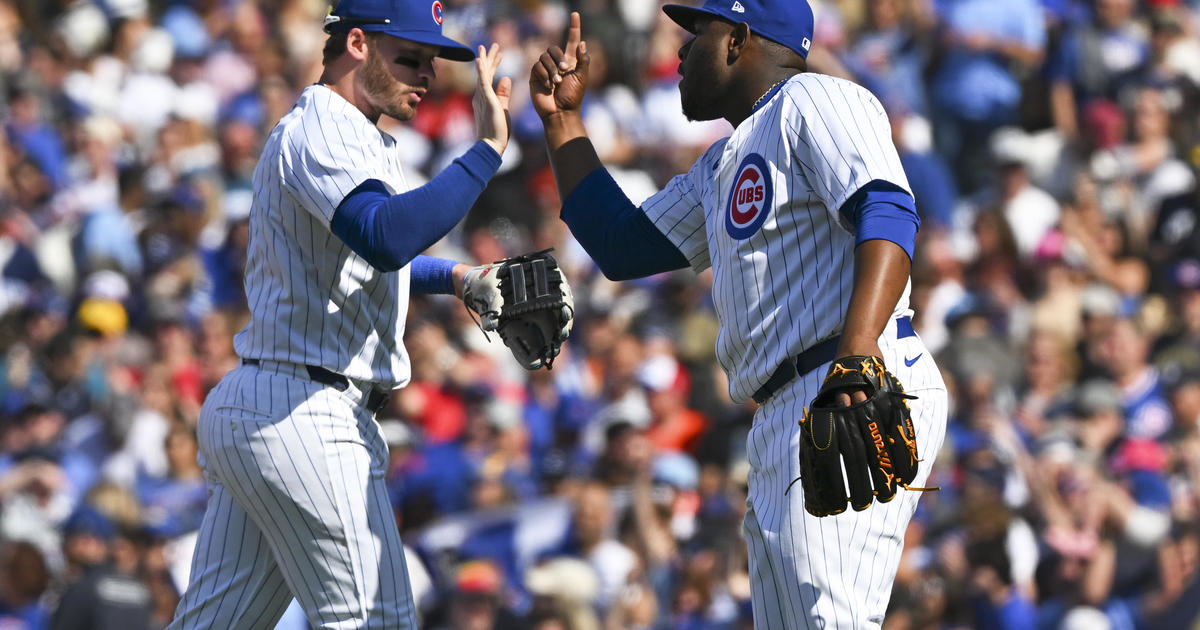Big Ten's Delany The Highest Paid Commissioner In 2009
WASHINGTON (AP) According to tax records recently acquired by the Associated Press, four of college football's top conferences pay their commissioners $1 million or more, far exceeding the salary of most university presidents.
A review of 2009 IRS returns, the most recent available, shows that Big Ten commissioner Jim Delany was the highest paid, receiving total compensation valued at $1.6 million, followed by Atlantic Coast Conference commissioner John Swofford ($1.1 million), Southeastern Conference commissioner Mike Slive ($1 million) and Big 12 commissioner Dan Beebe ($997,000). The other two commissioners each started in July 2009, so their compensation figures are only for the last six months of the year: PAC-10's Larry Scott ($735,000), and Big East's John Marinatto ($366,000).
Those figures include base salary and benefits such as health insurance, as well as other forms of pay such as retirement and deferred compensation. On an annual or prorated basis, only Marinatto made less than the median pay of presidents of the nation's large research universities, which was $760,774 in 2008, according to a Chronicle of Higher Education survey published last fall.
The new data about commissioner salaries comes at a time when, driven by a series of controversies at major programs, there's a growing chorus about the problems of enforcing amateurism in college football, saying it may be time to rethink the system as everyone but the athletes are making big money.
Southern California was put on probation last year after 2005 Heisman Trophy winner Reggie Bush was discovered to have received improper benefits from a sports agent; the NCAA concluded that the father of last year's Heisman winner, Cam Newton, tried to sell his son's services to Mississippi State; and, Ohio State coach Jim Tressel and star QB Terrelle Pryor both left the school this spring in the wake of revelations that Pryor and other players sold memorabilia for cash and tattoos.
Indiana University President Michael McRobbie, the Big Ten board chairman, said his conference's presidents and chancellors believe Delany is worth "every penny" that he receives.
"The board has enormous confidence in the commissioner, thinks that he's done an outstanding job," McRobbie said in a telephone interview. "We're very, very pleased with the progress in the conference under the commissioner's leadership."
The board chairmen of the ACC, SEC and Big 12 were all said by aides to be unavailable for interviews.
The conferences, which oversee a host of college sports besides football, operate as 501(c)(3) charitable organizations, meaning their operations are tax-exempt. The compensation is generally set by boards of directors made up of the member schools' presidents and chancellors.
The six conferences, all of which receive automatic bids to Bowl Championship Series games, are among 11 that make up college football's highest level. The other five don't receive automatic bids and receive smaller bowl payouts from the BCS, although those payments have increased in recent years as overall BCS revenue has grown.
Those five conferences - Mountain West, Mid-American, Sun Belt, Conference USA and the Western Athletic Conference- all paid their commissioners less than $600,000 in 2009. But they also brought in far less in total revenue - between $9 million and $50 million, compared to $102 million to $244 million for the six core BCS conferences, the tax records show.
AP's review also found that Slive, the SEC commissioner, received a $1 million bonus in 2008, nearly doubling his pay that year to $2.1 million. SEC spokesman Charles Bloom said that bonus was for two TV deals the SEC negotiated that year, with ESPN and CBS.
Beebe, the Big 12 commissioner, got the biggest pay raise from 2008 to 2009. His $997,000 was more than 50 percent higher than his 2008 pay of $661,000. Big 12 spokesman Bob Burda said the conference board of directors raised Beebe's pay to put him on par with the other conferences that receive automatic BCS bids.
Dave Czesniuk, senior associate director at Northeastern University's Sport in Society, argued that the figures reflect the over-commercialization of college sports.
"I can't imagine that the well-being and growth of student-athletes is of paramount importance when there's that level of compensation," he said, when told of the commissioners' pay. As for Slive's bonus, Czesniuk said, "Let's be real about what's being rewarded. You can't say that it's about the student-athlete experience."
The million-dollar paydays for the commissioners still lag far behind some of the nation's top football college coaches. Texas coach Mack Brown, for instance, makes around $5 million, while Alabama coach Nick Saban earns $4.7 million. Still, the revelations could help fuel a revived movement to pay players, many of whom get athletic scholarships to cover tuition, fees, room, board and books, but not a slice of the revenues.
"It brings into sharp focus that it is immoral for grown men to exploit young athletes in the way that they do, then shamelessly say after these young men bring in so much money that they are not entitled to any part of it," said Ernie Chambers, a former Nebraska state senator who has advocated paying college athletes since the 1970s.
Chambers drew national headlines in 2003 when he sponsored a bill, eventually signed into law, which required the University of Nebraska-Lincoln to pay its athletes if the legislatures in four other states with schools in Nebraska's conference passed the same law.
South Carolina coach Steve Spurrier recently proposed that coaches contribute money that would be used to give 70 players on a team a $300 stipend every game. Several coaches, including Saban, signed the proposal.
"Unfortunately, the players are still getting the same scholarship they got 50 years ago," Spurrier said in a telephone interview. "We need to find some ways to give them some spending money. I call it expense money for going to college."
But Spurrier said he had no problem with the commissioners making seven-figures.
"Us coaches are making all the money," said Spurrier, who will make $2.8 million next season. He said that his commissioner, Slive, "deserves to be making over a million or so with all of the money that's coming in."
Murray Sperber, a visiting professor at the University of California-Berkeley and a critic of commercialization in college sports, said commissioners' generous compensation bolsters the case for playing players.
"Mike Slive got more money for TV contracts, but nobody turns on their TV set to see Mike Slive, who may be interviewed at halftime," he said. "They want to see Alabama and Auburn play at their very best, which means players have to be in 12-month training and (put in) very intensive work weeks. The logic and the ethics of the situation say the players should be paid."
The Big Ten also has floated the idea this year of paying athletes to cover expenses, and the topic will be discussed at an NCAA retreat in August.
But paying athletes would go against the NCAA's policy on amateurism. On its website, under the hearing "Why student-athletes are not paid to play," the NCAA says: "Student-athletes are students first and athletes second. They are not university employees who are paid for their labor."
NCAA President Mark Emmert recently said of paying athletes, "There is a model for that, it's called professional sports, and I love them. But that's not what college sports is about."
McRobbie, the Big Ten board chairman, said there are pros and cons on whether to pay college athletes, but he didn't see any connection between that issue and the million-dollar compensation for commissioners. As to whether that level of pay is appropriate in higher education, he said that in setting compensation, employers have to look at the market.
"You have to see this as part of a broader marketplace for talent, and that's certainly how we see it on the board," he said.
TM and © Copyright 2011 CBS Radio Inc. and its relevant subsidiaries. CBS RADIO and EYE Logo TM and Copyright2010 CBS Broadcasting Inc. Used under license. All Rights Reserved. This material may not be published, broadcast, rewritten, or redistributed. The Associated Press contributed to this report.



